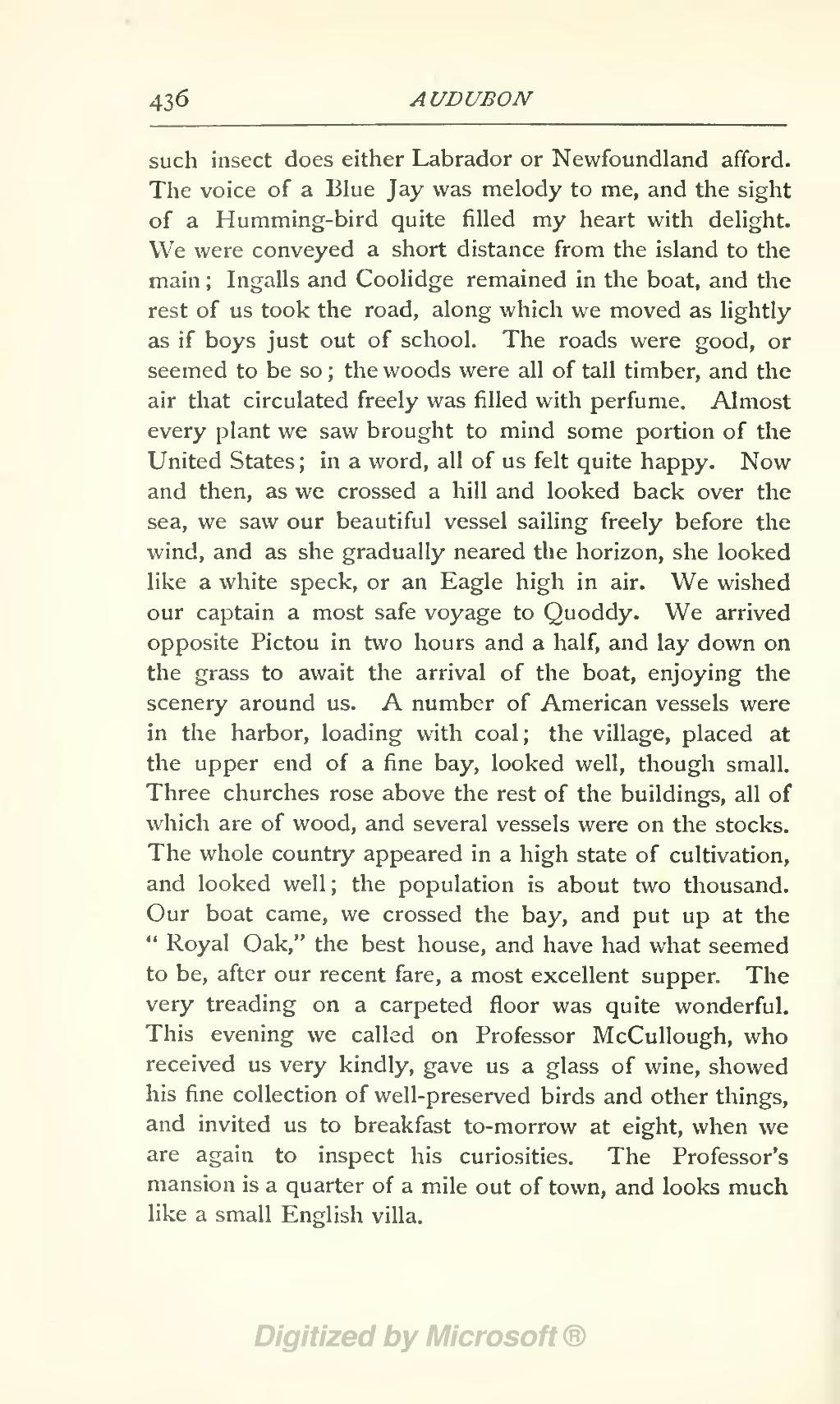such insect does either Labrador or Newfoundland afford. The voice of a Blue Jay was melody to me, and the sight of a Humming-bird quite filled my heart with delight. We were conveyed a short distance from the island to the main; Ingalls and Coolidge remained in the boat, and the rest of us took the road, along which we moved as lightly as if boys just out of school. The roads were good, or seemed to be so; the woods were all of tall timber, and the air that circulated freely was filled with perfume. Almost every plant we saw brought to mind some portion of the United States; in a word, all of us felt quite happy. Now and then, as we crossed a hill and looked back over the sea, we saw our beautiful vessel sailing freely before the wind, and as she gradually neared the horizon, she looked like a white speck, or an Eagle high in air. We wished our captain a most safe voyage to Quoddy. We arrived opposite Pictou in two hours and a half, and lay down on the grass to await the arrival of the boat, enjoying the scenery around us. A number of American vessels were in the harbor, loading with coal; the village, placed at the upper end of a fine bay, looked well, though small. Three churches rose above the rest of the buildings, all of which are of wood, and several vessels were on the stocks. The whole country appeared in a high state of cultivation, and looked well; the population is about two thousand. Our boat came, we crossed the bay, and put up at the "Royal Oak," the best house, and have had what seemed to be, after our recent fare, a most excellent supper. The very treading on a carpeted floor was quite wonderful. This evening we called on Professor McCullough, who received us very kindly, gave us a glass of wine, showed his fine collection of well-preserved birds and other things, and invited us to breakfast to-morrow at eight, when we are again to inspect his curiosities. The Professor's mansion is a quarter of a mile out of town, and looks much like a small English villa.

